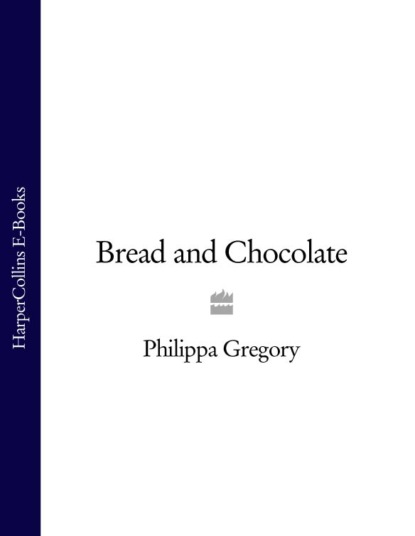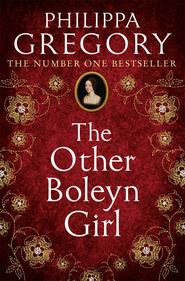По всем вопросам обращайтесь на: info@litportal.ru
(©) 2003-2025.
✖
Bread and Chocolate
Настройки чтения
Размер шрифта
Высота строк
Поля
‘It matters to me,’ he volunteered. ‘It’s a staple food, of course. But it’s more than that. Our Lord named himself as bread. He ordered us to pray for our daily bread. I serve my brothers when I bake for them.’
‘How did you learn? Where did you get all these recipes?’
‘I was taught by a brother baker. And I will teach my apprentice. The skills are handed down, the recipes too.’
‘I can’t teach. I don’t have the patience,’ she remarked.
He remembered with a flicker of guilt the disappointed face of Brother Gervase. ‘I mean I will teach my apprentice,’ he promised himself. ‘Some time.’
One recipe she rejected at once, pointing out that it would be hard for him to prepare in the time allowed. Another was rejected on the grounds that it would not film well.
‘It’s not how it tastes in television cookery,’ she said dismissively. ‘We can all stand around saying: ‘‘Oh, how delicious!’’ It’s how it looks that counts. It’s how you look while you cook it that counts.’
He hesitated. ‘Where I come from it is never how things look. It is always how they are.’
She gave him a quick sweet smile. ‘This is the outside world now, Brother James. This is all surface, a world of meringue, not meat.’
The assistant director hovered and then approached. ‘Time to go to makeup,’ she said to Brother James.
‘Don’t be a complete fool,’ Caroline Davis said sharply. ‘He’s as handsome as a Greek god. What d’you want to do? Give him lip gloss?’ To James she turned and said reassuringly, ‘Be yourself. Nothing else is more important,’ and then she was gone.
Brother James watched her stride away to the other side of the studio and snap at the assistant cook who was unpacking ingredients from cling-filmed bowls.
‘Was she all right?’ the assistant director asked nervously.
‘Wonderful,’ he said.
He cooked a plain peasant bread as she had recommended and became absorbed, as he always did, in the familiar comfort of kneading the dough, feeling it come alive under his fingers, under the heel of his hand, the transformation of individual ingredients into the wonderful elasticity of dough with its hidden life which would warm and swell under the secret shield of the tea towel.
When the camera crew moved in a rush from his table to Caroline’s he went with them and watched her long fingers pointing at the ingredients, deftly spooning the glutinous shining body of chocolate batter, as rounded and gleaming as a slug. And then came the little miracle of television cookery – the arrival of the perfectly cooked dish at the very moment it was needed. She spun on her heel to the eye-level cooker and produced a cake at the very second of perfection. Smoothly she turned it out on to a wire rack, and it slid from the tin keeping its perfect shape: a sponge as light as air, as dark as lust. He could smell the hot cake from where he was standing and he felt the saliva rush into his mouth like a presentiment of sin. The assistant director had to nudge him to rush back to his own mock-Gothic pine table to bring the loaves out of the oven and to break the bread as part of the closing credits. His bread was golden and wholesome with a toast-brown crust. He broke it before the dark observing eye of the camera and smelt the familiar scent of home.
‘Well done,’ Caroline Davis said as the film crew were clearing up. There was a tradition that the food cooked for the programme was shared out with a glass of wine. She offered him a slice of her Devil’s Food Cake. ‘D’you want a taste?’ she asked.
He took a paper plate and plastic fork. The icing was as dark and moist and heavenly sweet as the cake itself. The first forkful adhered to the roof of his mouth in a melting mass. He closed his eyes in pleasure. When he opened them he saw that she was watching him with a cool measuring gaze.
‘Stay behind,’ she said quietly. ‘When all this lot have gone. Stay behind and we’ll have a glass of wine on our own.’
‘They’ve ordered a car to take me back –’
‘It’ll wait.’
The crew thinned out, disappeared. Someone said a whispered word to Caroline and she snapped at him and then the two of them were left alone in the darkness of the studio which was as cavernous and quiet as an empty cathedral, with only the two altars of the cooking tables illuminated. Caroline drew closer to him and put her slim hand on the white bib of his apron. ‘You are quite, quite fascinating,’ she said very quietly.
He knew himself to be in great moral danger. ‘Why did you want me to stay?’ he asked.
Her gaze did not waver. ‘I imagine you know why. I felt – didn’t you? – an instant attraction.’
He cleared his throat. ‘I am not available for instant attractions,’ he said clumsily. ‘Nor, er, lasting ones. I have given my life to…’
‘D’you know,’ she interrupted him before he could speak his refusal, ‘I think I must taste of chocolate.’ She turned her face towards him so close that he could feel her warm breath on his lips. He smelled her: the scent of a woman, a heady mixture of warm makeup, perfume, her liquorice hair, her vanilla skin, and the deep erotic odour of chocolate. He was lost.
‘I never saw such a rich sponge that was so light,’ he gabbled. ‘Will you show me how you did it?’
She was diverted for a moment, then she laughed. ‘You must pay me,’ she said. ‘I don’t work without a fee.’
‘I don’t have any…my vows are obedience, poverty and…and…’
‘Pay me with a kiss.’
They brought Brother James back to the monastery by limousine, still holding his large box of ingredients and utensils. His apron, still crisply white, was folded on top of the box. Brother Gervase was waiting at the door to greet him.
‘Did you use the frozen bread?’ Brother James demanded without a word of greeting. ‘Did it defrost all right?’
‘Yes, Brother. I did just as you said. We all saw you on the television. It was a wonderful programme, Brother. And the cake! Brother Jerome said you could make it for us for Easter – that chocolate cake that the woman made.’
‘I might,’ Brother James said grudgingly.
The young man led the way into their shared kitchen. Brother James hesitated on the threshold. At his marble top, where he, and he alone, always made the monastery’s bread there was already a fine dusting of flour and the shrouded bowls of rising loaves. He turned on the younger brother with a face like thunder.
‘I thought you wouldn’t mind if I started some rolls for the brothers’ dinner,’ the young man stammered. ‘I so want to learn, Brother James. I so want you to teach me!’
Brother James placed the box heavily on the wooden worktop and strode to his breadmaking board. He shook out his apron with an outraged flourish and tied it on like a warrior girding himself for battle. Then he hesitated. The dough was well kneaded, the yeast was worked evenly through the cream-coloured mixture. It was rising in pleasing rounded shapes. It would be good bread.
His anger and sense of intrusion died away. The brother was young and had a right to learn his trade. Perhaps he had been too hard on the lad. A little charity should always have a place in a well-run kitchen. And no-one is perfect. He smelled the intoxicating smell of warm yeast, the smell of fertile female life itself filling the kitchen with its warmth. No-one can promise to be perfect, we all need forgiveness for one sin or another.
‘Brother James? Shall I fetch you a clean apron?’
Brother James glanced down at the immaculate white of his starched apron and then gasped. In the very centre, dark against the whiteness, was the unmistakable cupid’s bow outline of a chocolate kiss.
Brother James paused for a moment, remembering something which had been very sweet and very surprising. Like a rich chocolate cake but as light as air.
‘Yes,’ he said. ‘Fetch me a clean apron and we’ll make a start.’
Coo-eee (#ulink_50254b92-a31f-5124-8c15-c7bdbfb6106d)
He saw her the moment the bus drew up at the quayside and the doors opened with a hiss into the bright Aegean sunlight and hot Aegean air. She had a scarlet baseball cap crammed on a head of tight permed curls. It said ‘Widget Dodgers’ above the wide peak, which shaded her pink sunburned face; a slogan so obscure that he found it lodged in his brain as he watched her labour up the gangplank and haul on the hand of the crew member who waited to welcome her on board.
‘I’m game for a laff, me,’ she remarked to no-one in particular when she was landed on deck, and then she looked at him as if he had caught her eye, as she had caught his.
‘You’ll be the teacher,’ she exclaimed. ‘Am I right?’
‘Guest lecturer,’ he murmured.
‘I doubt you’ll teach anything to me!’ she exclaimed, and turned to her husband who bobbed along in her wake. ‘I said, I doubt he’ll teach anything to me.’
‘Certainly not, if you are not interested,’ he said pleasantly. ‘It’s not school, it’s not compulsory. Some people find that a little information enhances their cruise. They like to know a little about the history and background of the scenery. But some people prefer to drift and wonder. Think of me as a bar snack. Nibble or not, as you wish.’
It was a practised speech, not a spontaneous one, and it had always worked before for first-time educational cruise goers who found the thought of a guest lecturer on board too daunting. She barely drew breath before she exploded in a loud honking laugh.












